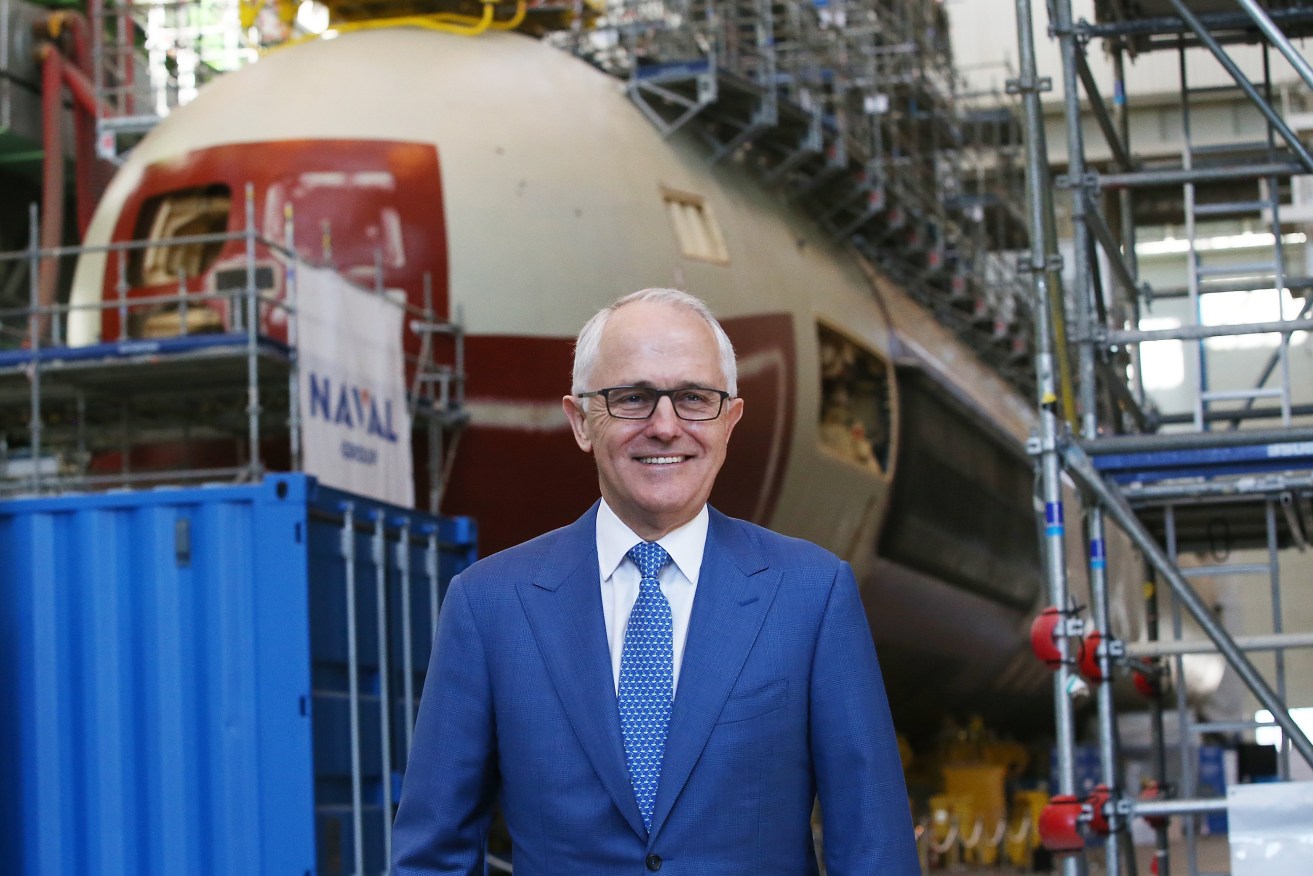Submarines project will need a “cathedral” in Adelaide
Australia will need to build a massive “cathedral” to kick off the biggest defence project in the country’s history.

Prime Minister Malcolm Turnbull at the Naval Group's submarine shipyard in Cherbourg. Photo: AAP/Kym Smith/Pool
Prime Minister Malcolm Turnbull joined France’s Armed Forces Minister Florence Parly at the opening of the Australian Future Submarines design office in Cherbourg, west of Paris, on Sunday.
The office will be known as Hughes House after late Rear Admiral Owen “Oscar” Hughes, who spearheaded the Collins class subs project.
In December last year, Australia and France formally sealed a $50 billion agreement under which French naval contractor Naval Group (formerly known as DCNS) will build a new fleet of diesel-electric submarines based on its nuclear Barracuda.
Speaking at the Barracuda facility, Naval Group CEO Herve Guillou told Turnbull and guests: “This is a sort of cathedral … and Australia is now here.”
The massive assembly hall, which will be required in Adelaide when work begins on the Australian submarines in 2022, allows for one submarine on the finishing line and another on the assembly line.
A workforce of 2,800 people will be needed in Adelaide.
The Cherbourg design facility will receive its first personnel later this year, who will work with Naval Group on the design of the next generation submarine.
Turnbull said it was important in the long-term Australia not only construct the submarines but operate them and sustain them, rather than rely on another country.
“Australia must be the master of her own destiny,”
He expected the project to not only deliver a new defence capability but “act as a magnet” for other industry.
Parly linked the project with the need for a stronger military presence in the Indo-Pacific region.
“France like Australia considers that the Indo-Pacific zone is of capital importance,” she said.
“There are 1.6 billion people living there so the regularity of our naval presence including in the Sea of China – the objective of that is not just to defend the rights of the sea but also to contribute to regional safety.”
She said oceans were the “stage of political expression of power”.
“A strong marine is an instrument of sovereignty that is paramount to manage, master and protect one’s areas.”
The project has the strong endorsement of French President Emmanuel Macron, who met with Turnbull on a flight from the Hamburg G20 summit to Paris on Saturday and discussed the project over dinner.
“It is not simply a contract,” Macron said.
The decision had national, international and strategic outcomes and provided work for Australian industry and as president he would do all he could to ensure the contract was met.
The project has not been without controversy.
In early 2016 DCNS was left reeling after details from more than 22,000 pages of documents relating to submarines it is building for India were published in The Australian newspaper, leading to concerns about the company’s ability to protect sensitive data.
Parly said she would ensure the “sensitivities” around the designing of the submarine would be protected.
– AAP




